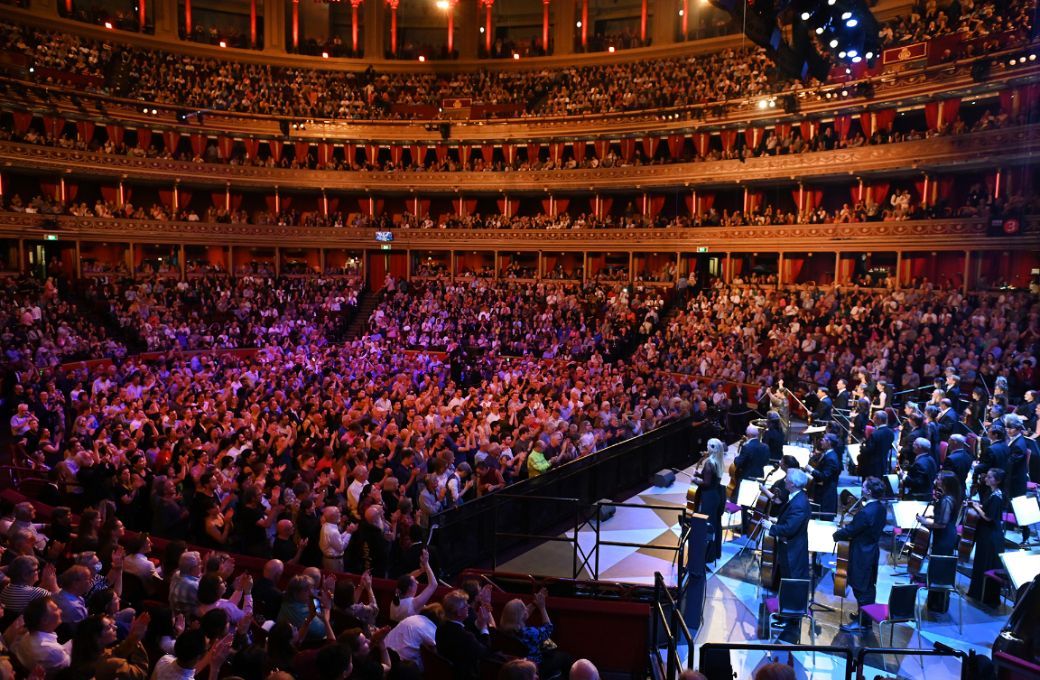Where would the British be without the BBC Proms? Undoubtedly one of the finest music festivals anywhere in the world, despite its huge scope, it sometimes feels like the festival has to valiantly fight its corner. No wonder: the Proms is where classical music is put to the test as a public, democratic good. This is no small task in Britain, historically suspicious of classical music as something decadent and foreign. But after the nerve-wracking years of the Coronavirus pandemic, the festival, which runs for 8 weeks from 19th July to 14th September, seems to have firmly found its voice.

This preview covers the first half of the 2024 season, up to 16th August. Even that is difficult to achieve, given the sheer quantity of music on offer. The Proms ethos is an almost utopian Edwardian ideal of transforming classical music into something both cosmopolitan and home-grown, both serious and approachable. Moreover, the best seats in the house are also the cheapest: standing tickets are £8, bookable from 9am the day of the concert (no more queuing required). Dress codes are informal and summery: you can basically wear anything.
The Proms has also historically been where a broad public has been introduced to new works and new ensembles, often on historic occasions (such as Birtwistle’s extraordinary saxophone concerto Panic at the Last Night in 1995). This year features plenty of world and UK premieres, including one on the First Night: Ben Nobuto’s chorus-and-orchestra Hallelujah Sim., programmed against Clara Schumann’s Piano Concerto, itself aired for only the second time at the Proms. Elim Chan is joined by Isata Kanneh-Mason on a bill that also includes Bruckner’s Psalm 150 – the Viennese symphonist being one of several composers enjoying anniversary celebrations this year.
Another anniversary composer for 2024 is Arnold Schoenberg, born 150 years ago. Prom 5 sees Schoenberg’s lush late-romantic Pelleas und Melisande, paired with Alexander von Zemlinsky’s Die Seejungfrau (The Mermaid). In doing this, the BBC National Orchestra of Wales and Ryan Bancroft are recreating a historic 1905 concert at the Vienna Musikverein, conducted by Schoenberg himself – the BBC NOW return the following day for the mighty mass of Verdi’s Requiem. (Fans of fragrant early Schoenberg should stick around for Verklärte Nacht, programmed alongside Mahler’s Kindertotenlieder, two days later.)
Meanwhile, the first Bruckner symphony of this year’s Proms is heard in Prom 14 on 29th July, with Paavo Järvi shepherding the BBC Symphony Orchestra through Bruckner’s First, alongside South Korean wunderkind Yuncham Lin performing Beethoven’s “Emperor” Concerto. The following two days feature the appearance of the BBC Philharmonic, with two BBC commissions – the first from Anna Clyne, The Gorgeous Nothings, setting Emily Dickinson for giant forces matching Messiaen’s Turangalîla-Symphonie. The following day, violist Lawrence Power performs Cassandra Miller’s magical viola concerto I cannot love without trembling, itself inspired by writings of Simone Weil, programmed against Shostakovich’s terrifying Fourth Symphony.
Another composer with 150th anniversary celebrations this year at the Proms is Gustav Holst: indeed, he might even be synonymous with the festival itself. Capable of great public-spirited music-making, Holst also produced works that were serious and even esoteric in character. Prom 19, 3rd August sees Sakari Oramo lead Holst’s rich and haunting The Cloud Messenger, for chorus and orchestra, in its first ever performance at the Proms. Completed in 1913 just prior to The Planets, the work sets Sanskrit poetry (one of Holst’s loves), and is presented alongside Elgar’s Cello Concerto and Jonathan Harvey’s Tranquil Abiding – perfect reflections of Holst’s civic and esoteric sides. (The composer’s lighter side is present this season too in Prom 33, with the BBC Symphony Orchestra presenting Hammersmith alongside other picture-postcard works from Vaughan Williams and Stanford.)
Holst’s life was tragically cut short by illness, in a similar fashion to Kaija Saariaho, who died last year. Her music makes a welcome appearance in this year’s Proms, with her spellbinding Mirage, for soprano, cello and orchestra, performed by the BBC Symphony Orchestra on 9th August. The performance features a suitably all-Finnish lineup of principals: soprano Silja Aalto and cellist Anssi Karttunen, together with the BBC SO’s chief conductor Sakari Oramo. Fans of Saariaho’s magical realism will want to stick around later that evening, for the singular German composer Heiner Goebbels’ Songs of Wars I Have Seen, revived by the London Sinfonietta and the Orchestra of the Age of Enlightenment.
From the point of view of musical revolutionaries, there is one standout event in this first half of the Proms season. On 15th August, US composer-performer extraordinaire Anthony Braxton makes a rare visit to the UK (and first ever to the Proms) for a performance with the BBC Scottish Symphony Orchestra, led by Ilan Volkov. The programme ranges from Duke Ellington to Mary Lou Williams, and Braxton’s own Composition No. 27 (+46, 151, LM). Braxton’s music might appear forbidding, but its effect is truly visceral. Expect raucous dissonance, tenderness, blues, heat and maximum intensity from a unique and special musician.
BBC Proms 2024 runs from 19th July to 14th September.
Concerts are are also held in Bristol, Nottingham, Gateshead, Aberdeen, Belfast and Newport.
This preview was sponsored by BBC Proms.


